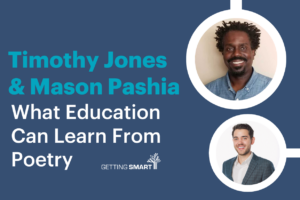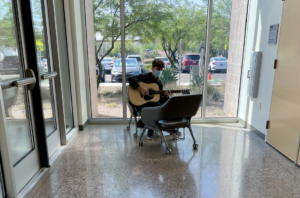Should Skills Training Replace Higher Education?

With $1.5 trillion in college debt weighing down the economic trajectories of young Americans, many high school students and their families are considering career pathways over traditional liberal arts education.
In response to widespread criticism and shrinking enrollments, retired Indiana University professor George Kuh said “privileging short-term job training over demanding educational experiences associated with high levels of intellectual, personal, and social development…is a bad idea for individuals, for the long-term vitality of the American economy, and for our democracy.”
There are obvious and long-term benefits to a liberal arts education (see Fareed Zakaria’s 2015 book In Defense of a Liberal Education), but compounded price hikes (resulting from rising costs and reduced public support) make the risk of debt without a degree the new worst-case scenario for Gen Z.
The new rule for young people is, as Ryan Craig outlines in A New U, go to a good selective school for free if you can, and if you are motivated by the opportunity. If you don’t get a free ride to a good selective university, look for a free (or debt-free) sprint to a good first job.
More New Rules for Today’s Students
1. Build your resume while in high school. From site visits to job shadowing, internships and client-related projects, and gig work, the best way for students to discover what inspires them (and, alternatively, what is soul-sucking) is to try out different fields. It’s the smart way that high school students are informing their postsecondary choices.
2. Secure college credits before graduating. This is the definitive approach to making college completion both faster and cheaper. Students have access to an expanding variety of (free) college credit options; in addition to Advanced Placement and International Baccalaureate, concurrent enrollment and stackable badges also extend access.
In partnership with community colleges, more than 400 early college high schools across the country enable students to earn an associate’s degree with their high school diploma. Texas has 199 early college high schools and 63 P-TECH high schools that add business partnerships and work experiences.
3. Don’t take on debt without a clear sense of purpose. College for college’s sake no longer offers economically disadvantaged students a ticket into the middle class and ongoing job security. Don’t take on debt without a clear sense of purpose and high likelihood of degree completion.
4. Aim for sustainable, lifelong learning. For the last hundred years, the formula has been 16 to 20 years of education, followed by 40 years of work; the new rule is 60 years (or more) of earn and learn. For those that choose technical training after high school, there is a lifetime to add (free or inexpensive) liberal arts education.
With a good handle on the ladder of opportunity’s first rung, build an earn and learn ladder that incorporates the liberal arts—enabling a richer, more holistic educational experience—and study with purpose and intentionality.
To Dr. Kuh’s question, should skills training replace higher education? The answer is yes; free and debt-free skills training should replace expensive wandering while developing maturity and a sense of purpose and racking up debt—it’s dangerous for individuals and a drag on the economy as a whole.
His question is a dated construct. It’s not a ‘go to work’ or ‘go to college’ question anymore. Instead, it should be ‘what’s the best path to purposeful contribution and a lifetime of learning?’
For more see:
- Podcast: Michael Horn on Choosing College
- Does College Still Pay? Seven New Rules for Making a Good College Choice
- 12 Trends Killing College
- Don’t Go To College Without Being Clear Why You’re Going
Stay in-the-know with innovations in learning by signing up for the weekly Smart Update
This blog was originally published on Forbes.





Nadia Rolle
When I first noticed the title of this article, I immediately thought "no" in the sense that it should not replace higher education but moreso be an equivalent option for those who have challenges with higher education - financial or otherwise. After reading the article, I inferred the same. It just goes to show that educational success does always require a college degree. Learning the right skill-set to satisfy a need in society or the surrounding community is just as acceptable or more (in some fields). Great read!